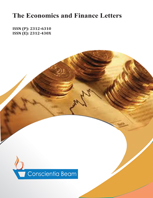Applied regression modeling to propose policy recommendations for green banking development in Vietnam
DOI:
https://doi.org/10.18488/29.v11i3.3852Abstract
In Vietnam, green banking plays a critical role in successfully implementing the National Strategy on Green Growth for 2021-2030, vision to 2050. Green banking helps businesses invest in projects, programs and infrastructure to reduce emissions and protect the environment. Therefore, qualitative and quantitative investigations were conducted to identify the critical factors of green banking development. The structural equation model (SEM) analyzes the complex relationships between several factors related to green credit based on a survey of 450 staff members. The research provides lawmakers and bank executives with the scientific basis for new ideas. This study seeks to improve green banking institutions and offer specific solutions to promote banking and credit products and apps to help enterprises expand their green credentials. The findings also support the government and functional agencies in improving project appraisal stages and strengthening hygiene and safety credit inspections in credit policies for green banks. Finally, the results have green credit applications that advise the government to enhance the regulatory framework of green banking under international standards to provide transparency. Simultaneously, improving the practicum framework for green economic sectors and developing conventional green financial markets is necessary to create a foundation for green banking development in the future.

